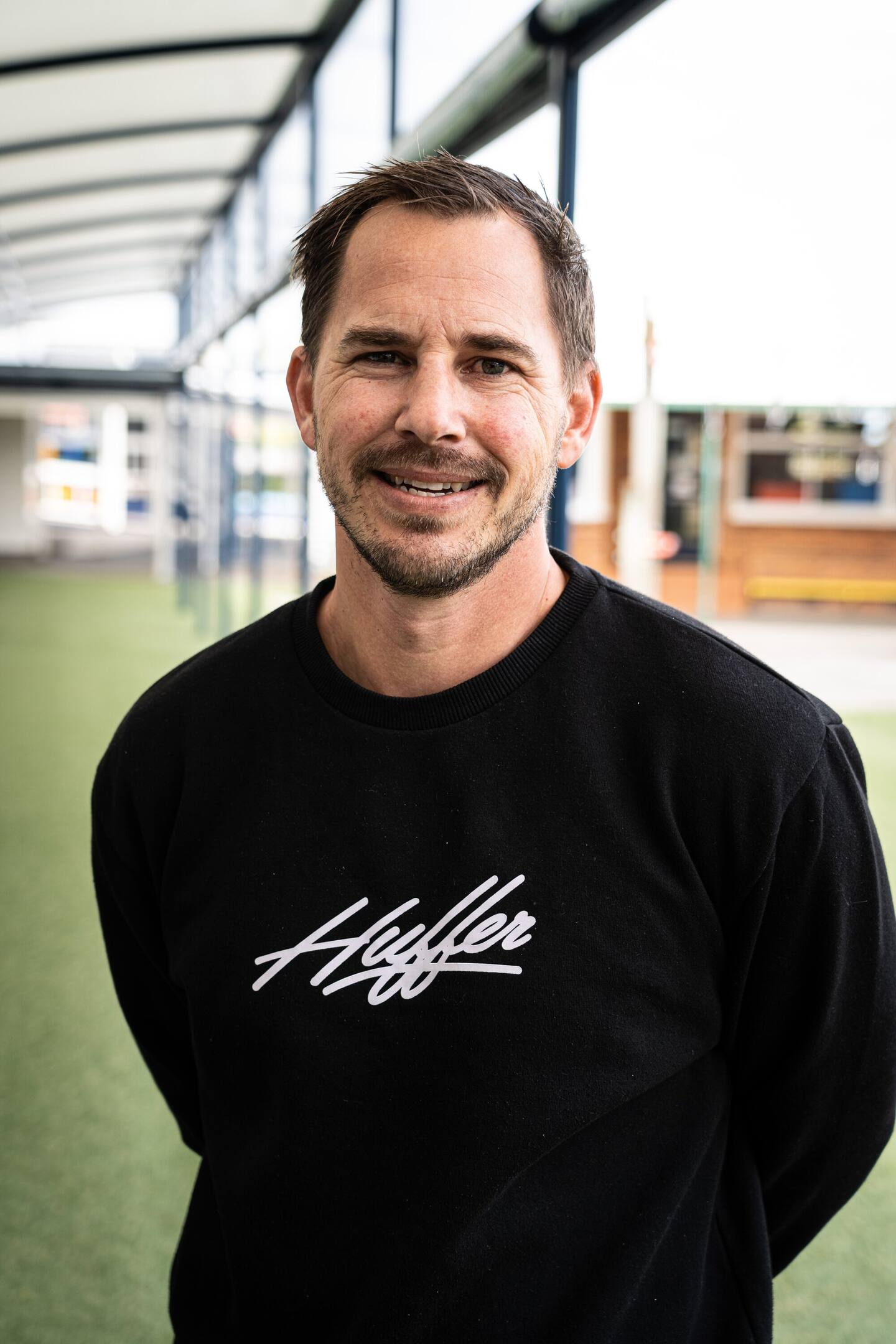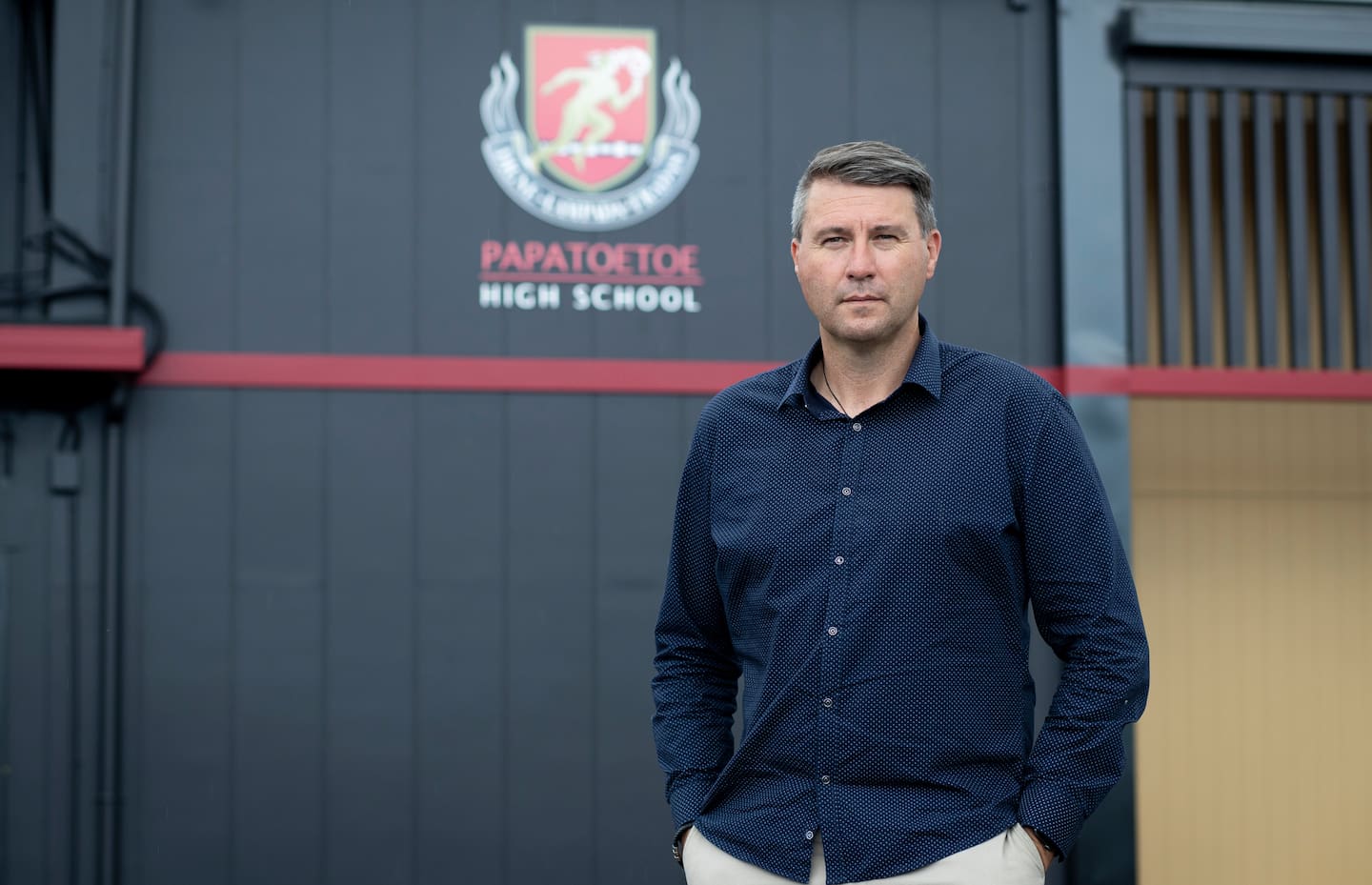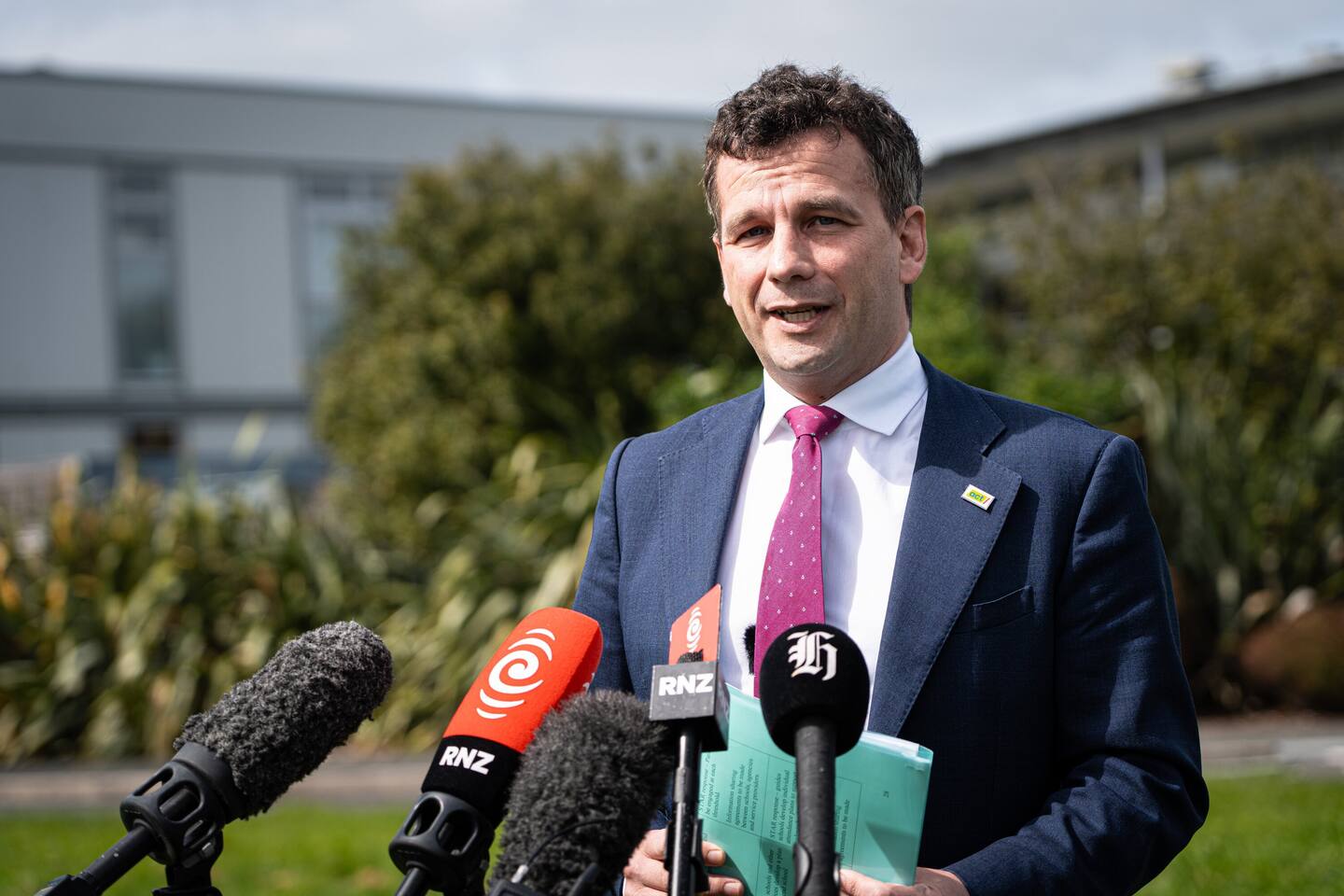- Acting principal Peter Thorne criticises ban on teacher-only days during term time calling it a “kick in the guts.”
- - Associate Education Minister David Seymour outlines new truancy measures, including potential prosecution of parents.
- - Concerns arise about the effectiveness of prosecuting truancy, as issues are often complex.
The acting principal of Belmont Primary School on Auckland’s North Shore has labelled a move to ban teacher-only days during the term a “kick in the guts” for under-pressure staff.
As part of a crackdown on student truancy, Associate Education Minister David Seymour yesterday said teacher-only days during the term won’t be allowed and has asked Ministry officials to monitor compliance of the rule.
Seymour threatened fines for schools that didn’t adhere.
“I have directed the Ministry to take a more active role in the prosecution process. I reserve the right to look at an infringement scheme in the future if this approach doesn’t work.”
Speaking to Newstalk ZB’s Mike Hosking this morning, David Seymour said that students, teachers, the Government and the school all played a part in accountability.
”Ultimately, we just get the data.”
He urged schools to “take this seriously”.
Under current rules, teacher-only days are supposed to be held out of term time, unless authorised by the Education Ministry.
However, Belmont Primary School acting principal Peter Thorne said teachers are regularly busy with classroom commitments during the holiday period.
“The initial response is that it’s a bit of a kick in the guts. We see our teacher-only days as a real valuable tool where we can get together and focus on our professional needs and the needs of the students.”
 Peter Thorne is acting principal at Belmont Primary School on Auckland's North Shore. Photo / Alyse Wright
Peter Thorne is acting principal at Belmont Primary School on Auckland's North Shore. Photo / Alyse Wright
He didn’t believe taking one or two teacher-only days during a year would reduce truancy.
“I don’t know why a teacher-only day would have any impact.”
Thorne said there’s been a lot of talk from the Government about valuing teachers and stripping their ability to decide when to take teacher-only days amounted to “devaluing the profession”.
President of the Secondary Principals’ Association of New Zealand Vaughan Couillault was also unsure how dictating when staff can take a teacher-only day would improve absenteeism.
“I don’t think our absentee rate is significantly disadvantaged because a school takes a teacher-only day.”
 Spanz president Vaughan Couillault is also principal of Auckland's Papatoetoe High School. Photo / Dean Purcell
Spanz president Vaughan Couillault is also principal of Auckland's Papatoetoe High School. Photo / Dean Purcell
He wanted more information about the plan saying there is flexibility about when schools start and finish a school year, and because of this, some schools are open more than the required number of days.
He said if it was the case that schools would be penalised for having a teacher-only day during the term, even when they’ve hit their required open days, it wouldn’t make sense.
“That would be unfortunate and negates the need for flex at the beginning of term one and the end of term four. I’mnot quite sure what the Minister’s motivation is there. The devil will be in the detail,” he said.
Monitoring of teacher-only days will come into force in 2026 along with a mandatory requirement for all schools to introduce an attendance management plan.
Seymour said teacher-only days can’t be taken “willy nilly”, explaining it’s at the discretion of the Education Ministry.
“If the teachers aren’t showing up it’s pretty hard to motivate the students to turn up.”
When pressed on the issue, he said his concern was about student education.
“We are not here primarily for teachers. We are here for students and the future of this country,” he said.
Parents giving the ‘middle finger’ to the system
Seymour said too many parents were giving the “middle finger” to the system when it came to their child’s attendance and there needed to be consequences.
“I’ve talked to a tenant officer who have repeatedly tried to contact parents. They’re being ignored, they’re being told school is not important that they don’t want to engage,” he said.
Asked whether he’d had more than one report of such an issue, he said it was “quite widespread”.
 Associate Education Minister David Seymour announces the new truancy rules in Auckland's Botany. Photo / Alyse Wright
Associate Education Minister David Seymour announces the new truancy rules in Auckland's Botany. Photo / Alyse Wright
He said from the beginning of the school term in 2026 and a new “stepped attendance response” or what was called a Star system would be mandatory in schools.
“Any student who reaches a clearly defined threshold of days absent will trigger an appropriate and proportionate response from their school and the Ministry,” said Seymour.
He said the response would depend on the severity of the situation.
Some examples of how interventions could work are:
- Five days absent: The school to get in touch with parents/guardians to determine reasons for absence and set expectations.
- - 10 days absent: School leadership meets with parents/guardians and the student to identify barriers to attendance and develop plans to address this.
- - 15 days absent: Escalating the response to the Ministry and steps to initiate prosecution of parents could be considered as a valid intervention.
Couillault said prosecuting parents could make already established problems worse.
“At the moment, schools in New Zealand need to lead a prosecution if there are (cases of) condoned truancy. People like me are reluctant to lead the prosecutions because we’reactually trying to restore a learning relationship.”
He said while having Government-run prosecutions would remove a faceoff between a school and parents, he wanted to understand if fines and prosecutions had been successful in reducing absenteeism overseas.
He said there was a difference between truancy and absenteeism and in most cases, students were absent because of sickness or visits to the doctor or dentist which were “pretty decent reasons not to be at school”.
“I would like to think that Minister Seymour is referring to the unexplained, the unjustified and the active truant as opposed to your children and mine who might have had five days off in term one because they had a nasty cold.”
Thorne was also sceptical about the Minister’s attendance crackdown, telling the Herald there are varied and sometimes complex reasons why children don’t attend school.
He said staff worked hard to build positive relationships with parents of truant children and threats of prosecution would be damaging.
“From my point of view, I don’t think that’s going help the situation at all.”
He also wondered who was going to be in charge ofmonitoring the new system.
“From what I understand there’s no extra resource to help the schools. That’s what we’d want – extra resource so we can have a person in the position that could focus on truancy.”
Michael Morrah is a senior investigative reporter/team leader at the Herald. He won the best coverage of a major news event at the 2024 Voyager NZ Media Awards and has twice been named reporter of the year. He has been a broadcast journalist for 20 years and joined the Herald’s video team in July 2024.
Take your Radio, Podcasts and Music with you









